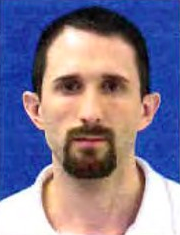
SAN FRANCISCO—Shaun Bridges, a former Secret Service agent who was investigating the Silk Road drug trafficking website, pled guilty today to charges of money laundering and obstruction of justice.
Bridges' scheme was straightforward and very profitable. After Silk Road admin Curtis Green was arrested in January 2013, he debriefed agents in Baltimore. Bridges took his admin credentials, logged in, and started locking Silk Road drug dealers out of their accounts. He then looted the accounts, grabbing about 20,000 Bitcoins, and put them into his own account.
US District Judge Richard Seeborg read out each of the government accusations against Bridges in court today, and the man responded "yes sir," acknowledging he had committed each of the acts.

Bridges also pled guilty to obstructing the Baltimore investigation of Silk Road and later to the internal investigation of his own behavior. At one point, he talked to a colleague who was being interviewed and agreed "to tell a consistent story" about his unauthorized use of a FINCEN database.
The plea agreement includes sentencing recommendations, but it isn't known what those are at this time. "You understand these are simply recommendations, and it will be for me to decide what the appropriate sentence is?" Seeborg asked.
"I do," said Bridges.
Both the money laundering and obstruction counts carry a maximum of 20 years in prison. Bridges' lawyer declined to comment on what the sentencing recommendations were.
"He’s regretted his actions since the beginning, and he’s trying to put this behind him," said Levin out in the hallway after the proceeding. "It's a very stressful time."
Bridges is the second Silk Road investigator to be charged with stealing from the site. Dressed in a suit and tie today, he struck a contrasting figure to Carl Force, who showed up to his change of plea hearing wearing an orange inmate's uniform.
Before the proceeding ended, prosecutor Katherine Haun mentioned that the government had just received information that gave them concerns that Bridges could be a flight risk.
"The defendant had been actively trying to change his name and social security number in the state of Maryland," she told the judge. "That's very concerning."
According to Haun, Bridges had tried to change his last name to be the same as his wife's last name and change his first name to "a very odd name." She also noted that Bridges had handed over four firearms after he was charged, and if he changed his name he could again be able to acquire weapons.
Bridges' lawyer said his client's name change attempts had been a response to concerns about identity theft following the widely reported hacking into US federal government personnel files.
"Those of who work in the federal government have to deal with that," said Seeborg. "When you're concerned with flight risk, activity of this kind sends up a lot of red flags. I’m not surprised they’re bringing this to my attention."
Seeborg declined to remand Bridges to custody, but said he was forbidden from making any attempt to change his name or other personal details. He also added electronic monitoring and curfew requirements that Bridges must follow.
Bridges is scheduled to be sentenced in December.
Silk Road operated for nearly three years and was the largest website of its kind on the dark Web. Its creator, Ross Ulbricht, was tried and convicted earlier this year on charges of conspiracy to aid in drug trafficking, money laundering, and computer hacking. He was sentenced to life in prison.
reader comments
43